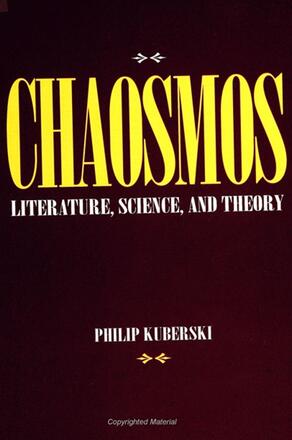
Chaosmos
Literature, Science, and Theory
Alternative formats available from:
Description
This book shows how writers like James Joyce, James Merrill, and Doris Lessing; scientists like Gregory Bateson, Ilya Prigogine, and David Bohm; and theorists like Jacques Derrida, Jacques Lacan, and Michel Serres forecasted and initiated a shift away from modernist conceptions of the world as a machine; the self as an isolated, enclosed principle, and representation as a reductive survey of the world and the self.
The focus of this book is the "chaosmos" (a Joycean coinage) apparent within the atom and also within analogous "nuclear" sites such as the self, the word, the organism, and the world. By "chaosmos," Kuberski intends a unitary and yet untotalized—a chiasmic—concept of the world as a field of inevitable and intermittent interference and convergence, a multi-leveled complexity from which emerge organisms, languages, and selves. In exploring and mapping chaosmos, Kuberski emphasizes significant convergences of literary and philosophic, deconstructive and organistic, Eastern and Western, and scientific and humanistic points of view.
Philip Kuberski is Associate Professor of English at Wake Forest University. He is the author of A Calculus of Ezra Pound: Vocations of the American Sign and The Persistence of Memory: Organism, Myth, Text.
Reviews
"Kuberski has a talent for boldly synthesizing large currents of contemporary thought and extrapolating equally bold conclusions. While some of his assertions will give pause to scholars with a more empirical bent, there are few pages in this book where the reader does not experience the shock of the new. The concerns addressed in this book, ranging from revisions in critical theory to alternate metaphysical foundations of a postmodern epistemology, are obviously important in themselves and central to virtually all disciplines in the humanities." — Robert L. Nadeau